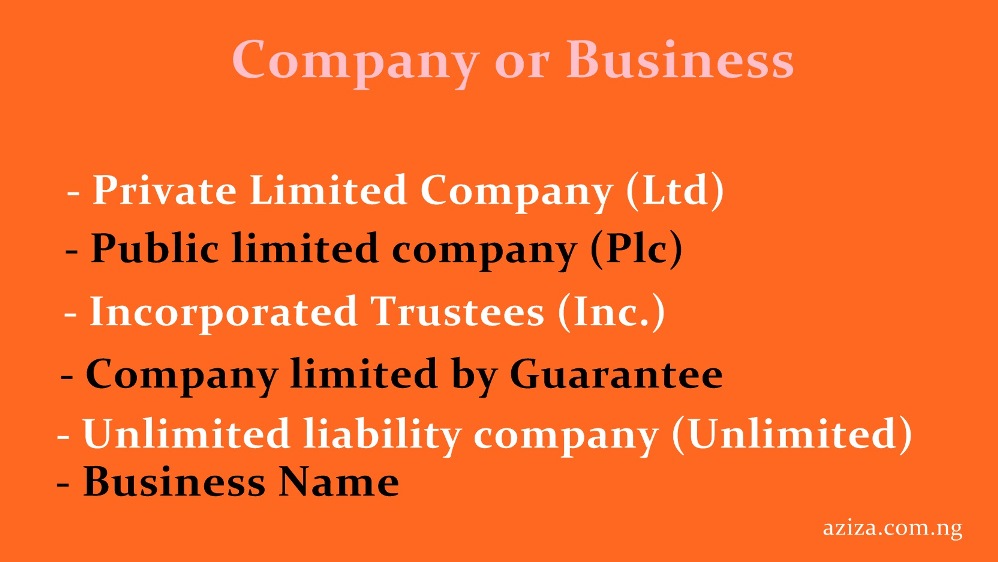The following guide is designed to help you understand the types of Nigerian businesses.
Read: Business or Company Registration in Nigeria
Sole trader
This is the simplest form of enterprise, it as it does not require registration, though the sole trader may wish to register the business name to exclude other businesses from trading by the same name.
It is the type of business in which the owner of the enterprise is exposed to the greatest personal risk, because the sole trader is personally responsible for all aspects of the business and has unlimited liability to all debts and legal actions.
The sole trader may also find it difficult to attract outside investment or partners, which can hinder the expansion of the business. The sole trader may also find it difficult to attract business as the sole trader does not file accounts or records with the Corporate Affairs Commission (CAC), giving a lack of business transparency, and making it impossible for potential customers to verify the background of the business via an official third party.
Private Limited Company (Ltd)
A private limited company is a legal entity in it own right, separate from those who own it, the share holders. The limited liability and simplicity of running the private limited company makes it the most common of registered business in Nigeria. As a shareholder of a private limited company, the shareholders personal possessions remain separate (unless they are secured against the business for borrowing), and the shareholders risk is reduced to only the money they have invested in the company and any shares the shareholder holds which has not be paid for.
Limited liability companies are also considered prestigious by other companies and the general public due to its legitimate nature and the way important information is recorded at the Corporate Affairs Commission. Anyone wishing to do businesses with a limited liability company can verify who is connected to the company and also the financial status of the company by paying the Corporate Affairs Commission a small fee. The level of transparency is very beneficial in terms of build public confidence in the company.
Get DPR Permit Registration Service
The private limited liability company have very few restrictions which makes the simple but yet flexible solution for many businesses.
The very minimum requirements are:
- The company must have a registered office in Nigeria
- The company name must not be exactly identical to any other company name currently held in the registry of the Corporate Affairs Commission
- At least twenty five percent of the authorised shares must be allotted at incorporation
- At least two people above the age of 18 must subscribe to the memorandum and articles of association.
- The total number of members in a private limited company must not exceed 50, not including those who are bona fide in the employment of the company
- The authorised share capital shall not be less than 10,000
Public Limited Company
A public limited company differs from the private version in that it is able to sell its shares to the public and may be quoted in the stock exchange. A public company must have at least 500,000 authorised share capital and the subscribers must take up at least twenty five percent of the authorised share capital. The cost of running a public limited company is reasonably higher than that of a private limited liability company. It is therefore better suited for large organisations.
Guarantee Company (not for profit)
In simple terms a guarantee company is not for profit and is the type mostly formed by charitable organisations. A guarantee company does not have share capital, and the members do not own the company, the do not receive any profits and have no claim to the company’s assets. All income generated is used to cover operating costs and to achieve the objectives of the company

